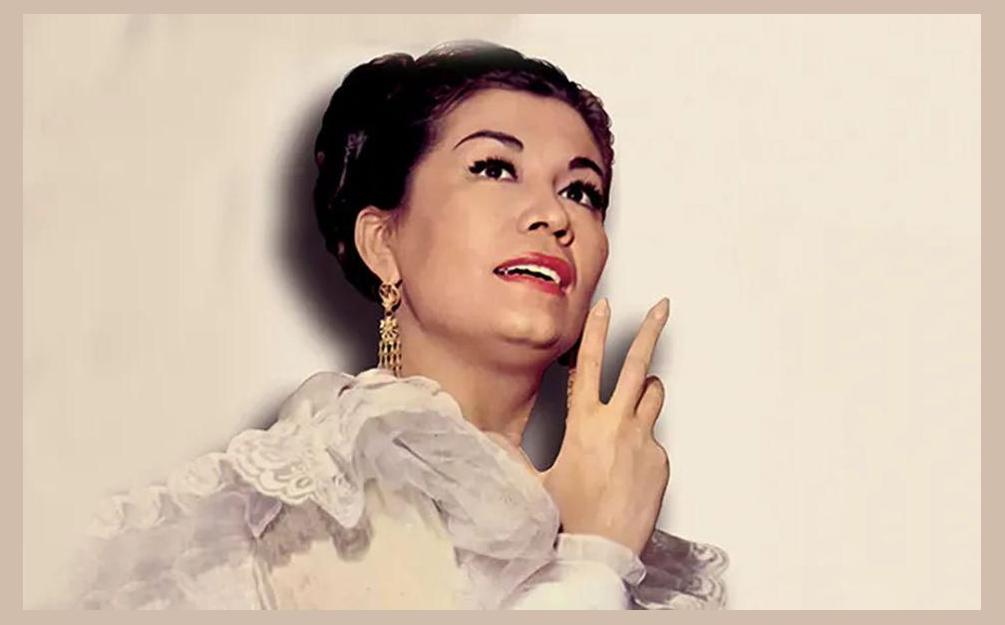 Lola Beltrán
Lola Beltrán
Lola Beltrán: The Voice of Mexican Folklore
Early Life and Rise to Fame
María Lucila Beltrán Ruiz, known to the world as Lola Beltrán, was born on March 7, 1932, in Rosario, Sinaloa, Mexico. From a tender age, her exceptional vocal talent was evident, and she began performing at local events. In 1964, she catapulted to national recognition after winning a singing contest organized by the famed "Rancho Grande" radio show.
Musical Prowess and Signature Style
Lola Beltrán's voice possessed an unmatched range, power, and emotional depth, capturing the hearts of audiences throughout Mexico and beyond. She became renowned for her interpretations of traditional Mexican folk songs, particularly those of the mariachi genre. Her signature style blended the classic elements of mariachi with a modern touch, creating a sound that simultaneously honored tradition and resonated with contemporary listeners.
Iconic Song: "Cucurrucucú, Paloma"
Among Lola Beltrán's vast repertoire, the song "Cucurrucucú, Paloma" stands as an enduring masterpiece. Written by Tomás Méndez in the early 1950s, the song became an instant classic, and Lola Beltrán's rendition elevated it to legendary status. Her soulful interpretation, with its haunting melody and evocative lyrics, captured the essence of the song's timeless message of love, loss, and longing.
Challenges and Controversies
Lola Beltrán's career was not without its challenges. She faced criticism from some quarters for her "modernized" approach to traditional music, which some purists argued compromised its authenticity. However, her unwavering commitment to her artistic vision ultimately silenced the detractors.
In her personal life, Lola Beltrán experienced both great joy and tragedy. She married three times, and her second husband, José Ángel Espinoza "Ferrusquilla," was a legendary mariachi singer. However, their marriage ended in divorce, and she later lost her beloved son in a car accident.
Discography and Members
Over the course of her illustrious career, Lola Beltrán recorded more than 100 albums, spanning the genres of mariachi, ranchera, and bolero. Her extensive discography includes iconic hits such as "Paloma Negra," "El Herradero," and "La Barca de Oro."
Lola Beltrán's band, which accompanied her on countless performances and recordings, was known as "Los Cuates de Sinaloa." It featured renowned musicians, including Gilberto Parra on guitar, Juan Camacho on trumpet, and Eduardo "Lalo" Cruz on vihuela.
Legacy and Impact
Lola Beltrán passed away on March 24, 1996, at the age of 64. Her loss was deeply mourned by the Mexican music community and beyond. She left an indelible mark on the world of music, inspiring generations of singers and musicians. Today, her voice continues to echo through the halls of history, reminding us of the enduring power and beauty of Mexican folklore.
Early Life and Rise to Fame
María Lucila Beltrán Ruiz, known to the world as Lola Beltrán, was born on March 7, 1932, in Rosario, Sinaloa, Mexico. From a tender age, her exceptional vocal talent was evident, and she began performing at local events. In 1964, she catapulted to national recognition after winning a singing contest organized by the famed "Rancho Grande" radio show.
Musical Prowess and Signature Style
Lola Beltrán's voice possessed an unmatched range, power, and emotional depth, capturing the hearts of audiences throughout Mexico and beyond. She became renowned for her interpretations of traditional Mexican folk songs, particularly those of the mariachi genre. Her signature style blended the classic elements of mariachi with a modern touch, creating a sound that simultaneously honored tradition and resonated with contemporary listeners.
Iconic Song: "Cucurrucucú, Paloma"
Among Lola Beltrán's vast repertoire, the song "Cucurrucucú, Paloma" stands as an enduring masterpiece. Written by Tomás Méndez in the early 1950s, the song became an instant classic, and Lola Beltrán's rendition elevated it to legendary status. Her soulful interpretation, with its haunting melody and evocative lyrics, captured the essence of the song's timeless message of love, loss, and longing.
Challenges and Controversies
Lola Beltrán's career was not without its challenges. She faced criticism from some quarters for her "modernized" approach to traditional music, which some purists argued compromised its authenticity. However, her unwavering commitment to her artistic vision ultimately silenced the detractors.
In her personal life, Lola Beltrán experienced both great joy and tragedy. She married three times, and her second husband, José Ángel Espinoza "Ferrusquilla," was a legendary mariachi singer. However, their marriage ended in divorce, and she later lost her beloved son in a car accident.
Discography and Members
Over the course of her illustrious career, Lola Beltrán recorded more than 100 albums, spanning the genres of mariachi, ranchera, and bolero. Her extensive discography includes iconic hits such as "Paloma Negra," "El Herradero," and "La Barca de Oro."
Lola Beltrán's band, which accompanied her on countless performances and recordings, was known as "Los Cuates de Sinaloa." It featured renowned musicians, including Gilberto Parra on guitar, Juan Camacho on trumpet, and Eduardo "Lalo" Cruz on vihuela.
Legacy and Impact
Lola Beltrán passed away on March 24, 1996, at the age of 64. Her loss was deeply mourned by the Mexican music community and beyond. She left an indelible mark on the world of music, inspiring generations of singers and musicians. Today, her voice continues to echo through the halls of history, reminding us of the enduring power and beauty of Mexican folklore.